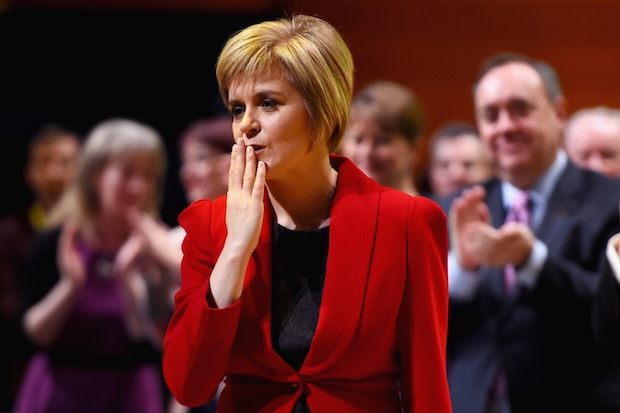After 15 hours of fascinating and – let’s face it – fairly exciting developments in l’affaire Sturgeon, here’s where I think we are, and I’ll try to stick as much as possible to incontrovertible facts, not political bluster:
If this was all a grand misunderstanding, I think the various parties would have come together by now to explain what they think has happened, e.g. perhaps Nicola Sturgeon used the word ‘expect’, that got turned into ‘espoir’ back in the French embassy, and then relayed to the FCO as ‘hope’. That’s pretty plausible, but we’ve heard no such explanation yet.
If it’s not a genuine misunderstanding, we’re left with the uncomfortable conclusion that one or more parties may have got their version of events wrong. And to my mind, there are three options in that regard:
(i) Perhaps the senior FCO official who spoke to the Consul General has misheard or chosen to embellish what the Consul General said. From my experience, this is borderline impossible. The stock in trade of FCO officials is producing memos like this: a verbatim record of conversations they’ve had, with a minor bit of commentary in the margins. This is a classic of its kind. I think we can state with some degree of certainty that what the FCO official wrote down is exactly what the Consul General said to him/her;
(ii) So perhaps the Consul General has misheard or chosen to embellish what Nicola Sturgeon said to the Ambassador. Mr Coffinier has been working as a civil servant in the French foreign affairs department for almost 30 years. In interviews, he comes across as dry and conscientious. Just look at the rest of the memo: his careful discussion of sensitivities around a meeting with a French minister; his concern over being able to provide a speaker for the Edinburgh Science Festival. Is this the sort of man to get something like the Sturgeon-Ambassador exchange wrong, or embellish it? Absolument pas;
(iii) This takes us to Sturgeon and the Ambassador themselves. We cannot know what was said between them, but they have both denied that Sturgeon ‘expressed a preference’ over the identity of the next PM. And to back them up, the Consul General says there is nothing in his notes of the meeting indicating the expression of a preference, “which suggests neither Nicola nor my ambassador said anything.”
So we have a mystery: if the denials of Sturgeon, the Ambassador and the Consul General are to be believed, we must wonder how the nature and detail of their conversation was so radically altered by the time the FCO official wrote it down, based on the account of the Consul General. Mr Coffinier himself has so far offered no explanation for this point.
Of course, there have been countless conversations in political history where the parties who took part come away with a different view of what was said (Oh, Granita!). That is not because one party is lying: it is just because people remember what they want to remember, depending what suits their interests.
In this instance, both parties are agreeing that was said is not what has elsewhere been written down. That may be true, but it should also be noted that it suits both parties to remember the conversation in this way: both Sturgeon and the French embassy would like the highly embarrassing version of events contained in the FCO memo to be discredited as soon as possible.
So that is where we currently are, and unless more information comes to light, that is where we will probably stay. But in the interests of unraveling this mystery, here are two questions it might be useful to answer:
1. Was the Consul General present for the Sturgeon-Ambassador meeting? I’m not clear on this point, but it would be useful to establish whether whatever account he gave to the FCO of the conversation was a first-hand account from a direct witness to the exchange, or a “third-hand account” as Nicola Sturgeon’s spokeswoman has claimed?; and
2. Are Sturgeon, the Ambassador and the Consul General disputing the entire version of the conversation reported in the FCO memo, or just the line about the First Minister’s supposed preference for David Cameron as PM. Did she say, for example, that “she wouldn’t want a formal coalition with Labour”; that “the SNP would almost certainly have a large number of seats”; that “she had no idea ‘what kind of mischief’ Alex Salmond would get up to”; and that she “didn’t see Ed Miliband as PM material”. If those four points are accurate, then it makes it all the more remarkable that the fifth point (about the preference for Cameron) was not. If, on the other hand, all five points are disputed, then it raises even more serious questions about how this account of events found its way into the official FCO memo.
Perhaps if we can get the answers to those two questions, we can get closer to solving this puzzle. Or perhaps all sides will finally get together and work out what has caused this giant diplomatic misunderstanding.






Comments